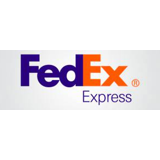

A6’s salesperson added that while many rival firms gather personal location data via a phone’s Bluetooth and Wi-Fi connections that provide general whereabouts, Anomaly 6 harvests only GPS pinpoints, potentially accurate to within several feet. Asked about these concerns, spokesperson Tom Korolsyshun told The Intercept “Zignal abides by privacy laws and guidelines set forth by our data partners.”Ī6 claims that its GPS dragnet yields between 30 to 60 location pings per device per day and 2.5 trillion locational data points annually worldwide, adding up to 280 terabytes of location data per year and many petabytes in total, suggesting that the company surveils roughly 230 million devices on an average day. Twitter’s terms of service technically prohibit a third party from “conducting or providing surveillance or gathering intelligence” using its access to the platform, though the practice is common and enforcement of this ban is rare. The source also asserted that Zignal Labs had willfully deceived Twitter by withholding the broader military and corporate surveillance use cases of its firehose access. The source of the materials, who spoke on the condition of anonymity to protect their livelihood, expressed grave concern about the legality of government contractors such as Anomaly Six and Zignal Labs “revealing social posts, usernames, and locations of Americans” to “Defense Department” users.

For anyone interested in tracking the daily lives of others, the digital advertising industry is taking care of the grunt work day in and day out - all a third party need do is buy access.
#Anomaly agency free#
Once your location is beamed to an advertiser, there is currently no law in the United States prohibiting the further sale and resale of that information to firms like Anomaly Six, which are free to sell it to their private sector and governmental clientele. The company is one of many that purchases vast reams of location data, tracking hundreds of millions of people around the world by exploiting a poorly understood fact: Countless common smartphone apps are constantly harvesting your location and relaying it to advertisers, typically without your knowledge or informed consent, relying on disclosures buried in the legalese of the sprawling terms of service that the companies involved count on you never reading. But there’s a good chance that A6 knows an immense amount about you. Virginia-based Anomaly Six was founded in 2018 by two ex-military intelligence officers and maintains a public presence that is scant to the point of mysterious, its website disclosing nothing about what the firm actually does.

To prove that the technology worked, Clark pointed A6’s powers inward, spying on the National Security Agency and CIA, using their own cellphones against them. government to effortlessly spy on Russian forces as they amassed along the Ukrainian border, or similarly track Chinese nuclear submarines. According to Brendon Clark of Anomaly Six - or “A6” - the combination of its cellphone location-tracking technology with the social media surveillance provided by Zignal Labs would permit the U.S.
#Anomaly agency plus#
Driven by a passionate and entrepreneurial culture encompassing a diverse, elastic set of skills, Anomaly has offices in Los Angeles, New York, Toronto, London, Amsterdam and Shanghai.Ĭlients include: Anheuser-Busch InBev, Beats, The Campbell Soup Company, Converse, Diageo, Diesel, Google, Hershey’s, Lego, MINI, Nike, Sally Hansen and The Coca-Cola Company.Īnomaly has been recognized for a very wide range of work and IP, covering both effectiveness and craft excellence including: Ad Age’s 2017 Agency of the Year, Cannes Lions, Effies, Fast Company’s Most Innovative, Jay Chiat, Digiday Awards and the Mashies – among the usual suspects.Īnomaly has also been honored with a few less conventional accolades as well, such as being named one of Time Magazine’s Best Inventions of 2016 for hmbldt, Toy of The Year for Mighty Jaxx, plus two Emmys for a television series, all of which the agency created and co-owns.In the months leading up to Russia’s invasion of Ukraine, two obscure American startups met to discuss a potential surveillance partnership that would merge the ability to track the movements of billions of people via their phones with a constant stream of data purchased directly from Twitter.

Anomaly is a difficult to define, but exciting to work at 'new model' agency.


 0 kommentar(er)
0 kommentar(er)
